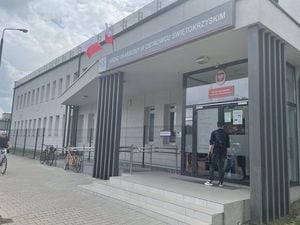On April 29, 2025, the Secretary-General of the United Nations, Antonio Guterres, extended his "good offices" to India and Pakistan amid rising tensions between the two nations. This announcement came during a press briefing by Stephen Dujarric, the official spokesman for Guterres, who revealed that the Secretary-General had engaged in telephone discussions with Pakistani Prime Minister Shehbaz Sharif and Indian Foreign Minister Subramaniam Jaishankar.
Dujarric conveyed Guterres' deep concern over the escalating hostilities, particularly following a terrorist attack that occurred on April 22 near the city of Bahaljam in Indian-administered Jammu and Kashmir. During this incident, militants opened fire on a group of tourists enjoying a horseback ride in the scenic Baisaran Valley, a popular tourist destination. This act of violence has intensified fears of further confrontation between the two nuclear-armed neighbors.
In his conversations with both leaders, Guterres emphasized the critical need to avoid any actions that could lead to miscalculations, which might escalate into a larger conflict. He reiterated his condemnation of the terrorist attack in Jammu and Kashmir, calling for an end to such violence. The Secretary-General's offer of mediation highlights the international community's ongoing concern regarding stability in South Asia.
As tensions simmer, the humanitarian situation in the region remains precarious. Concurrently, on the same day, the World Food Program (WFP) announced a significant aid initiative aimed at combating malnutrition in Afghanistan. In a statement released on its official X (formerly Twitter) account, the WFP revealed that Sweden has pledged $2.2 million to support food assistance for 125,000 Afghan mothers and children over the next three months.
This initiative is particularly crucial given the alarming humanitarian crisis in Afghanistan, where over 25 million people are in urgent need of assistance. The WFP has previously warned of a sharp decline in funding for its programs, leading to a drastic reduction in aid from 15 million people to fewer than 5 million in 2023. Experts assert that Sweden's recent contribution comes at a time when global aid to Afghanistan is dwindling due to political instability and security challenges.
The WFP's program aims to protect vulnerable groups from malnutrition, which has become a pressing issue as economic structures collapse and poverty levels soar in Afghanistan. The ongoing humanitarian crisis has been exacerbated by the lack of access to nutritious food, particularly in rural areas where resources are scarce.
Despite the limited immediate impact of Sweden’s financial aid, experts stress that the humanitarian needs in Afghanistan far exceed this assistance. They argue that sustained and increased support from the international community is essential to avert a more severe food and health crisis. Furthermore, local institutions must utilize these funds transparently and effectively to maintain international trust and ensure continued relief efforts.
As the UN Secretary-General's offer for mediation between India and Pakistan unfolds, the situation remains delicate. The potential for miscalculations on either side could lead to catastrophic consequences, especially in light of the recent violent incidents. The international community watches closely, hoping for a peaceful resolution to the tensions that have long plagued the region.
In summary, the UN's involvement in facilitating dialogue between India and Pakistan underscores the urgent need for diplomatic solutions to ongoing conflicts. Simultaneously, the WFP's efforts to address food insecurity in Afghanistan highlight the interconnectedness of global humanitarian issues, where political stability and social welfare are intricately linked.




